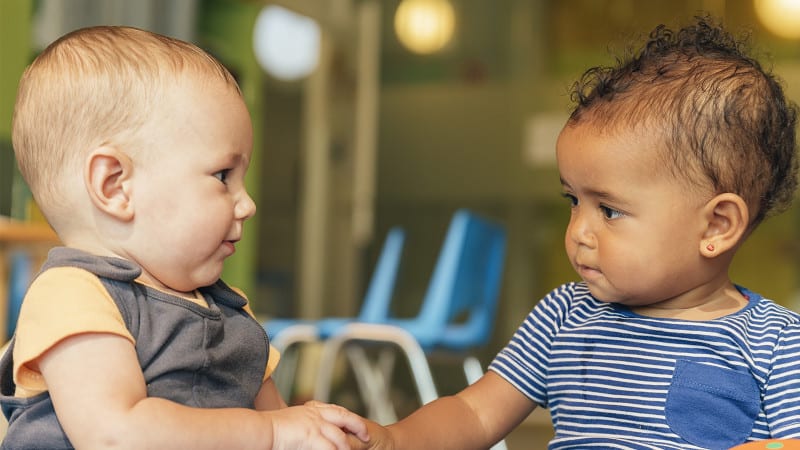The Start Early Illinois Policy team is pleased to release our newest multi-year policy agenda, guiding our work for the next four fiscal years (FY24-27) and building on the work of our recently-concluded inaugural agenda.
The FY24-27 Policy Agenda incorporates the many advances in the field over the past four years, including Governor Pritzker’s exciting multi-year Smart Start initiative, and encompasses our priorities – both within and alongside Smart Start. Our work will also both inform and be shaped by the governor’s recent announcement of the creation of a standalone early childhood agency. The agenda continues to be anchored in community and provider voices, and is organized into four foundational components:
- A stronger, more cohesive infrastructure for early childhood services where families can find the services that work for their children, where providers can easily access supports like I/ECMHC and strategies for inclusion of children with disabilities, and where quality, transparent data guides decision-making.
- Well-designed and administered early childhood programs where programs have the resources they need to meet the diverse needs of young children and their families.
- A thriving representative workforce with stronger pathways to earning needed credentials, receive the compensation and benefits that reflect the importance and complexity of their work and who receive ongoing professional learning opportunities.
- Improved access to health and mental health care, economic supports and healthy communities, which we know are basic necessities all children deserve and need to thrive, particularly in the prenatal to kindergarten entry period of life.
We look forward to work that not only drives us toward this vision but is rooted in the current challenges we know families and early childhood providers and programs face on a daily basis. The challenges the field faces are significant and urgent, and while recent investments have been incredibly helpful, our progress is tenuous. We can be successful only when we work in partnership with families and providers, our advocacy partners, our public partners in city and state government and the tremendous philanthropic community in Illinois. We look forward to tackling these challenges with all of our partners to make Illinois the best state in the nation to raise a child.











